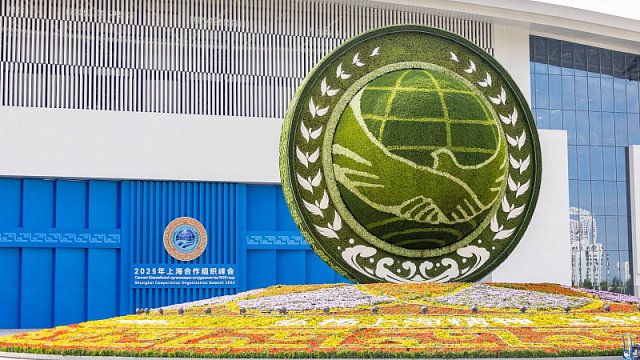
The 25th meeting of the Council of Heads of State of the Shanghai Cooperation Organisation (SCO) began in Tianjin, China, on 31 August. According to the Chinese Foreign Ministry, the two-day summit will be the largest since the organisation was founded.
Heads of state and government from more than 20 countries are participating in the event. Among them are Chinese President Xi Jinping, Russian President Vladimir Putin, Indian Prime Minister Narendra Modi, Iranian President Masoud Pezeshkian, Egyptian Prime Minister Mostafa Madbouly, Indonesian President Prabowo Subianto, Belarusian leader Aleksander Lukashenko, President of Kazakhstan Kassym-Jomart Tokayev, Head of Uzbekistan Shavkat Mirziyoyev, Prime Minister of Malaysia Anwar Ibrahim, Prime Minister of Vietnam Pham Minh Chinh, President of Laos Thongloun Sisoulith, and others.
In addition, the leaders of 10 international organisations have been invited, including UN Secretary-General Antnio Guterres, as well as representatives of the Commonwealth of Independent States (CIS), the Eurasian Economic Union (EAEU), the Association of Southeast Asian Nations (ASEAN), the Collective Security Treaty Organisation (CSTO), the League of Arab States, and other associations.
Director of the Institute for International Economic Relations at the Financial University under the Government of the Russian Federation, PhD in Economics, Professor Victoria Perskaya, as well as the institute’s chief researcher, RAS expert, Doctor of Economics Valery Abramov, stated in an exclusive commentaries to TV BRICS that security and the economy will be the key topics of the upcoming SCO summit. In their opinion, the leaders’ attention will be focused on developing partnerships with the CSTO, as well as on measures to counter terrorism.
Experts expect the economic agenda to be linked to the development of trade and economic ties, transport corridors and the alignment of national projects with the Belt and Road Initiative. Separate emphasis will be placed on the establishment of the SCO Development Bank and the expansion of the organisation’s interbank association. These steps will accelerate the formation of a payment infrastructure and lead to more active settlements in national currencies, they believe.
Mikhail Khachatryan, associate professor of the Department of Strategic and Innovative Development at the Financial University under the Government of the Russian Federation, also expressed his opinion in an interview with the international media network that the economic aspect will be the main focus of the summit. He cited a forecast that the combined GDP of the SCO member states and associate members in terms of purchasing power parity will amount to US$82 trillion in 2025.
“Among the key decisions of the summit, we can expect proposals for the creation of economic mechanisms that will shape the new face of a multipolar world – a world of equal opportunities and coordinated approaches by SCO member states to its formation. Along with this, decisions will be made aimed at developing economic, humanitarian, political and technological cooperation,” he said.
Following the summit, the leaders will adopt more than 20 documents, including the SCO Development Strategy until 2035 and the Tianjin Declaration.
The SCO is an international organisation founded in 2001. It includes Kazakhstan, Kyrgyzstan, China, Russia, Tajikistan, and Uzbekistan (since 2001), India and Pakistan (since 2017), Iran (since 2023) and Belarus (since 2024). SCO member countries account for more than 40 per cent of the world’s population and over 30 per cent of global GDP.
Photo:
CGTN
Самые
актуальные новости стран БРИКС https://tvbrics.com

